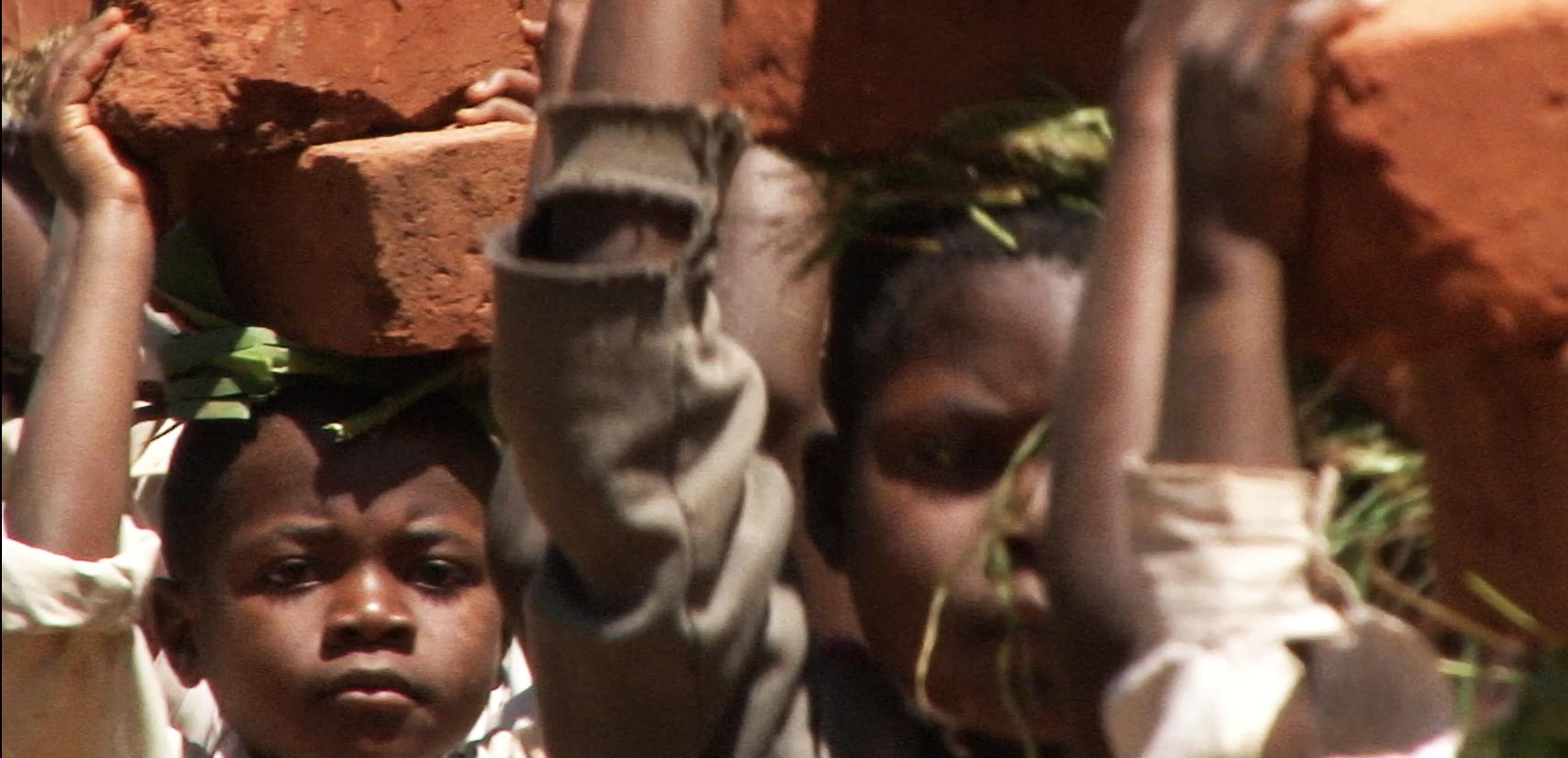Why a Congolese Girl Volunteered to Become a Child Soldier
The schools in eastern Congo send children of all ages to help build the classrooms. (photo: Dennis Porter)
by Dennis Porter
The war in the Democratic Republic of Congo has officially been over for several years now. But there are still more than a dozen armed groups fighting amongst themselves throughout the eastern part of the country. Many of them use child soldiers.
Sometimes those children join voluntarily — including girls.
Clementine Katungu Kalenjya isn’t what you’d expect of a former child soldier. She’s soft-spoken, shy and she’s constantly laughing, even when she describes her first battle against government soldiers. She was 15 at the time.
“They began to shoot,” Kalenjya said. “We heard shooting down at the roadblock and we were asking whose shooting?”
She said she and other girls were armed only with rocks, but a sorcerer put a magic potion on the rocks so they exploded like grenades.
Kalenjya became a soldier eight years ago, after she was kicked out of school because she couldn’t pay her school fees. With nothing else to do, she and four other girls and set off into the mountains to find the Mai Mai camp.
“I didn’t tell my family, I just left to join the Mai Mai,” she said. “I felt like being a fighter made me important.”
Her father, Jean Mutahinga, said when he came home that afternoon, he found out his daughter had gone.
“I was angry and afraid to hear that my daughter joined that group,” Mutahinga said.
The Mai Mai was set up by the Congolese government to protect against foreign militias.
Dozens of Mai Mai groups dot eastern Congo. They rob, and sometimes kill people. But other armed groups around here, including government soldiers, are often more brutal, so the Mai Mai sometimes have the reluctant support of villagers.
Masika Kasyoko, an elder in Kalenjya’s village of Lukanga, said she’s seen many children join the Mai Mai, often for food.
“Some of the children were hungry,” Kasyoko said, “and when they heard that in Mai Mai they had meat, they had breads, they said ‘oh, that’s where we have to go.'”
Kalenjya said it didn’t take long to realize she’d made a mistake joining the Mai Mai. In her first battle, her friend was shot dead in front of her. Kalenjya said she tried to leave, but Mai Mai leaders said her father would have to give them 10 goats in compensation – about five times her family’s annual income. So Kalenjya was stuck, fighting foreign militias and sometimes government troops.
“We were fighting against the national Congolese army, and Ugandan rebels and Rwandans,” she said. “We were just fighting because it was war. It’s the leaders who understood, but the rest of us, we didn’t know why.”
Kalenjya finally got to go home after the army raided the Mai Mai camp. But some Mai Mai fighters showed up at her hut and demanded her father compensate them for her release.
“They came here with knives and said ‘If you don’t have a goat, there’s going to be a problem. You better get a goat,'” her father said. “If I gave them one goat, then she could go back to school.”
Kalenjya’s father managed to get them a goat. Then he sent her away for her own protection. She spent half a year in a rehabilitation program for former child soldiers.
“We were sent to a village and trained how to re-enter society,” Kalenjya said. “They told us that if we went to school, they’d help pay for our school fees, or else they’d train us to be a tailor or carpenter.”
In the past few years, things have been improving for the people in Lukanga. Fewer children are joining the ranks of the Mai Mai. But for many of the former child soldiers, life is difficult. Masika Kasyoko said many villagers don’t trust them.
“Men fear them very, very hard,” Kasyoko said. “They say ‘Ah, even if I marry this girl, perhaps in the future, she can kill me’.”
Kalenjya is now 23 and still trying to finish high school. However, she’s run into the same problem that drove her to join the Mai Mai in the first place. Her school funding ran out so she was kicked out of school – again.
“The teachers aren’t paid by the government, so if we don’t pay the fees, they don’t get their salary. That’s why I can’t go to school,” she said.
But Kalenjya said that even if she can’t finish school, she won’t go back to the Mai Mai.
